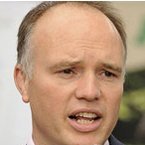
dade72 - Fotolia
Interview: GDS CTO Liam Maxwell and deputy CTO Andy Beale
Government Digital Service’s Liam Maxwell and Andy Beale talk about the service’s future, its relationship with departments, tactical outsourcing extensions and lessons learned
This month sees the Government Digital Service (GDS) receive the first tranche of the £450m it was allocated by chancellor George Osborne to deliver digital public services over the course of the current parliament.
With such a large sum of cash comes an expectation of big efficiency savings – £3.5bn, to be exact. But how GDS plans to do this is not yet public knowledge, despite Cabinet Office parliamentary secretary George Bridge telling the House of Lords last October that a strategy would be published before Christmas 2015.
As that money rolls into their hands, Computer Weekly talked to government CTO Liam Maxwell and his recently appointed deputy Andy Beale about the future of GDS, its relationship with departments, what’s going to happen to all those huge outsourcing deals, and the lessons learnt after a sometimes controversial four years of GDS.
As for the future, Maxwell says there is an “extremely detailed and effective plan in place” and that just because the strategy, which will be “published in due course”, isn’t out yet, doesn’t mean nothing is happening – GDS is ready to go.
One of the early wins that GDS aims to have up and running as soon as possible is common Wi-Fi and networks for government staff.
“We have tried to focus on things that deliver the most value early,” says Maxwell, adding that GDS plans to put in common government security Wi-Fi that is pre-procured, pre-secured and available across government.
“It’s about changing the way people work, where you can walk into a building and seamlessly connect to your services using Wi-Fi and it doesn’t matter whether you’re from Defra or the Ministry of Defence. That’s something that is going to be completely transformative,” he says.
There will also be a big focus on common technology services, which aim to standardise ways of working across government and introduce collaboration tools, document management systems and other services that can be shared across departments.
Lessons learned from rural payments
While there is no question that everyone at GDS passionately believes in its methodology and approach to digital, the support given by GDS has not always been appreciated by those on the receiving end. There have been tales of culture clashes between the GDS team and departments, leading to projects not going to plan.
One of those projects is the rural payments digital service, originally hailed as one of the government’s 25 “digital by default” flagship programmes.
The programme, run by GDS, the Department for Environment, Food and Rural Affairs (Defra) and the Rural Payments Agency (RPA), aimed to roll out a digital payments system to process claims for European Union (EU) subsidy payments to farmers.
When the system went live, the government was forced to resort to pen and paper after the IT system ran into problems. However, the problems went much deeper than that and both the National Audit Office (NAO) and the Public Accounts Committee (PAC) published damning reports, branding the programme an “appalling Whitehall fiasco”.

“We have tried to focus on things that deliver the most value early”
Liam Maxwell, GDS
The PAC wrote that GDS “hindered the delivery” of the programme and there was a clear culture clash and rifts between GDS and the department.
Maxwell says GDS fully takes on board this criticism, and “should have put in more capability earlier”.
“One of the core things we found when we got there to begin with, was that we needed to have more of an approach to a minimum viable product that would deliver what was there,” he says.
“What we learned was, in terms of design, work with your user research much much more effectively, much earlier. The understanding of what people wanted and needed to have was not as clear as it could have been – and that’s one of the things you learn as you go through this.”
Maxwell’s deputy CTO, Andy Beale, adds that despite the challenges, GDS is still working with Defra. “The relationships are still there and we continue to help them with some of their other programmes,” he says.
Help departments help themselves
Now GDS has a much more “collaborative approach” when working with departments, says Maxwell, admitting that this was a “real lesson”.
Maxwell says GDS used to have the strapline “For you, with you, by you”. In the beginning, he says, GDS was trying to do things for people, before moving on to working with people, and now it’s about enabling people to do it themselves.
Or as Beale puts it: “We are moving away from marking everyone’s homework.”
This collaborative and collegiate approach also means building up capability in government departments to enable them to implement a digital transformation themselves.
The digital skills gap in government is widely acknowledged and although several initiatives have been introduced to tackle the lack of skills, there is still a lot to be done.
However, GDS has worked hard to improve capabilities in government departments, helping to place a large number of new digital and tech leaders.
Read more about digital government
- Agile development, cross-department collaboration and a true ‘startup culture’ are all benefits of working for the Government Digital Service, according to Gov.uk Pay product manager Till Wirth.
- The government’s minister for digital reform talks about creating a Digital Leadership Academy, learning valuable lessons, and his love for open data.
Maxwell says that over the course of the last parliament, “there has been a huge injection of talent into government and government is no longer seen as the graveyard of an IT career”.
The Technology Leaders’ Network, set up by GDS in October 2013, aims to lead technology across government, ensuring that staff have “the right technology to deliver great digital services”, he says.
However, Beale says part of the network’s role going forward will be a big focus on supporting CTOs in departments, and where there is a skills gap, knowledge and technology can be shared and reused.

“We are moving away from marking everyone’s homework”
Andy Beale, GDS
“Our focus in the Technology Leaders’ Network is often to champion and amplify the good things that are already happening,” he says. “It’s about simply sharing the fact that it is going on and making it possible for other people to connect up and make use of that without reinventing the wheel in each silo.”
The first four years of GDS were about “disrupting the status quo”, says Beale, and now it is in a “much more evolved, maturing and building kind of phase”. Now people are “more digitally switched on” and have both the aspiration and ambition to change, he says.
Getting rid of large outsourcing deals
GDS has worked hard to disrupt traditional thinking around how the government buys IT. Part of that has been setting up the government’s Digital Marketplace, a platform for the public sector to procure all IT and digital services.
Maxwell says the Digital Marketplace, which has now recorded £1bn worth of sales, has “quietly but determinedly” made a big change.
It has been a long battle to change the way the government buys IT. Back in 2010, former Cabinet Office minister Francis Maude declared that the days of mega outsourcing deals in government were over.
But it is a hard task to get rid of huge outsourcing contracts that have been embedded in departments for decades. HM Revenue and Customs (HMRC) has been working for a long time to prepare for its £800m-a-year Aspire exit, which requires the department to build up new skills, bring staff back in-house and tender for a range of new services.
Earlier this month, HMRC announced it had extended its contract with Capgemini for application and management services for a further three years.
Maxwell says that although some “tactical extensions” may be needed, the end goal is still to get rid of the big outsourcing deals.
“We knew that, in some circumstances, some departments would need tactical extensions,” he says. “In some ways, if you think about it, getting off some of the very large services and contracts we’ve done, you’re going to need that.
“If we were too purist about that, we wouldn’t get stuff done.”
No one way of doing things
Maxwell is clearly proud of what GDS has achieved since its inception by launching CTS, its government-as-a-platform approach, and bringing new business on board, but says there is still a lot to be done.
What he is trying hard to avoid is a perception that GDS comes in and tells people what to do.
“It’s us being here to help and offer tools, solutions and effective advice to get people to the right solutions themselves,” he says. “We are never going to have a situation where you have a core central one way of doing things.
“We are fundamental believers that we want to do the right things in departments, and the solutions are best decided by the departments themselves, as opposed to us or anybody from the centre turning up and saying ‘do it that way’.”








